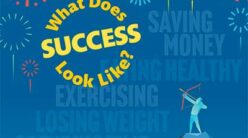
“I never have any energy.”
“I feel tired all the time.”
“I’m running on fumes.”
If you can relate, you’d likely love to have an extra boost of energy. The fight against fatigue starts with understanding the causes and the habits that will help.
What’s the difference between feeling fatigued and feeling tired? Tiredness goes away when you get enough sleep, but when you have fatigue, no amount of sleep leaves you feeling refreshed.
Causes can vary, but any of these conditions can contribute to feelings of fatigue:
• Temporary illness, such as a cold, the flu, or seasonal allergies
• Chronic illness, including heart disease, cancer, diabetes, rheumatoid arthritis, multiple sclerosis, and kidney disease
• Depression or anxiety
• Infections
• Poor diet
• Certain medications
• Thyroid problems
• Iron-deficiency anemia
If you are experiencing persistent fatigue, talk to your doctor, especially if you are having other symptoms, such as headaches, weight change, pain, or mood changes.
Three ways to combat fatigue
1. Eat for energy.
Highly processed, sugary foods might give you a temporary energy spike, but they will leave you with an energy crash. Instead, choose lots of natural foods, such as whole grains, fruits, and vegetables. And for sustained energy and health, the best drink option is pure, simple water rather than energy drinks or soda.
2. Get moving, even when you don’t feel like it.
It’s a bad cycle: You can’t exercise because you’re too tired, but you can’t get good sleep because you’re not exercising. Your body will rest better when it has had activity throughout the day. Start small by going for short walks. Then gradually build more physical activity—such as gardening, cleaning the house, or taking hikes—into each day.
3. Skip alcohol and caffeine.
Alcoholic beverages have a sedative effective, which may help you doze off, but once that effect wears off in the middle of the night, you’ll be wide awake, unable to get quality sleep. Similarly, caffeine might trick you into thinking it’s necessary for energy, but it can also disrupt much-needed sleep, especially when consumed in the afternoon or evening.






